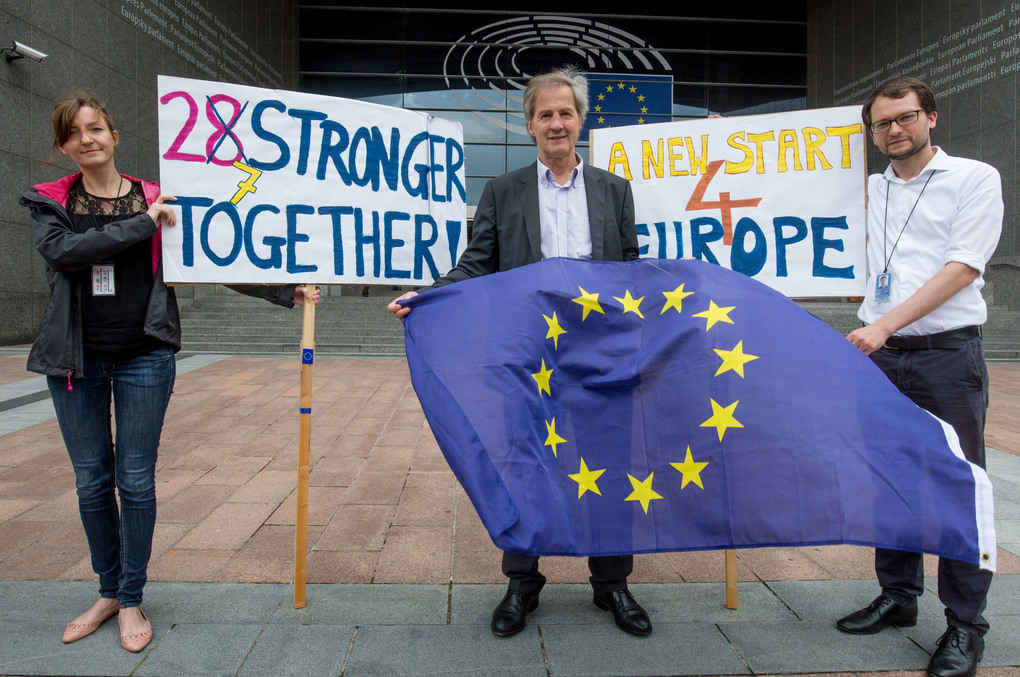Now That Britain Wants out, EU Must Figure out How to Do It

Now that Britain has voted to leave the European Union, the bloc's first order of business is figuring out how to get rid of it. Surprisingly, that's a tall order.
Britain seemingly has the luxury to pick and choose when to start the laborious, intricate process of disengagement from the 28-nation group, which is expected to take years.
EU leaders exhorted Britain on Saturday to activate as soon as possible Article 50 of the EU's governing Lisbon Treaty, which contains the exit clause and is the key to let the EU get on with its political life.
"There is urgency. There is no time to lose," said French Foreign Minister Jean-Marc Ayrault.
Britain, however, saw no need for quick action.
"It is vital to stress that there is now no need for haste," said former London Mayor Boris Johnson, the most prominent supporter of the "leave" campaign.
Prime Minister David Cameron said the process probably would not be triggered before October, when he will step down.
"There is a clear plea from the majority of member states to speed this process up," said Foreign Minister Bert Koenders of the Netherlands, which holds the EU presidency.
On Saturday, the foreign ministers of the EU's six founding members — Germany, France, Italy, Netherlands, Belgium and Luxembourg — were meeting in Berlin to look at the legal landscape.
At a two-day summit of the 28 EU leaders opening Tuesday, Cameron will be asked to leave the room at some stage so they can assess their future without Britain.
The 27 will find much political and legal uncertainty.
No country has ever left the EU before, so no one knows exactly how the process will play out beyond the fact that Britain must, at some point, unambiguously notify the bloc of its intentions and set a two-year clock ticking for negotiating its departure. Until it formally withdraws, Britain will remain a member, with all the rights and obligations that go along with membership.
It is in Britain's interest to delay the process so it can better prepare its exit conditions and pressure other EU nations to make concessions.
In the short term, the EU's policy commissioners will meet Monday in Brussels to take stock of developments. The European Commission, the EU's executive arm, must make recommendations to Britain's partners about what principles they might use to guide the exit negotiations.
Member states must agree with a qualified majority — or about two-thirds — on Britain's departure. But should the talks drag on toward the two-year time limit, all 27 would have to agree unanimously to extend the negotiations. If none is allowed, EU law would automatically cease to apply to Britain after two years.
The European Parliament will hold an emergency session Tuesday, hours before the summit. It must endorse any final decision by the member states by a simple majority, but the session is only likely to focus on a political resolution taking note of the U.K. vote and stating the assembly's position on what should happen next.
Until the process is completed and Britain withdraws, any EU agencies on British territory could remain there, British EU lawmakers would still work in the parliament, and the U.K. would still have a say in other negotiations, such as trade talks with other countries.
In addition, the hundreds of British citizens employed by the EU's institutions and agencies could keep their jobs conceivably for a few more years.
Политика конфиденциальности | Правила пользования сайтом







